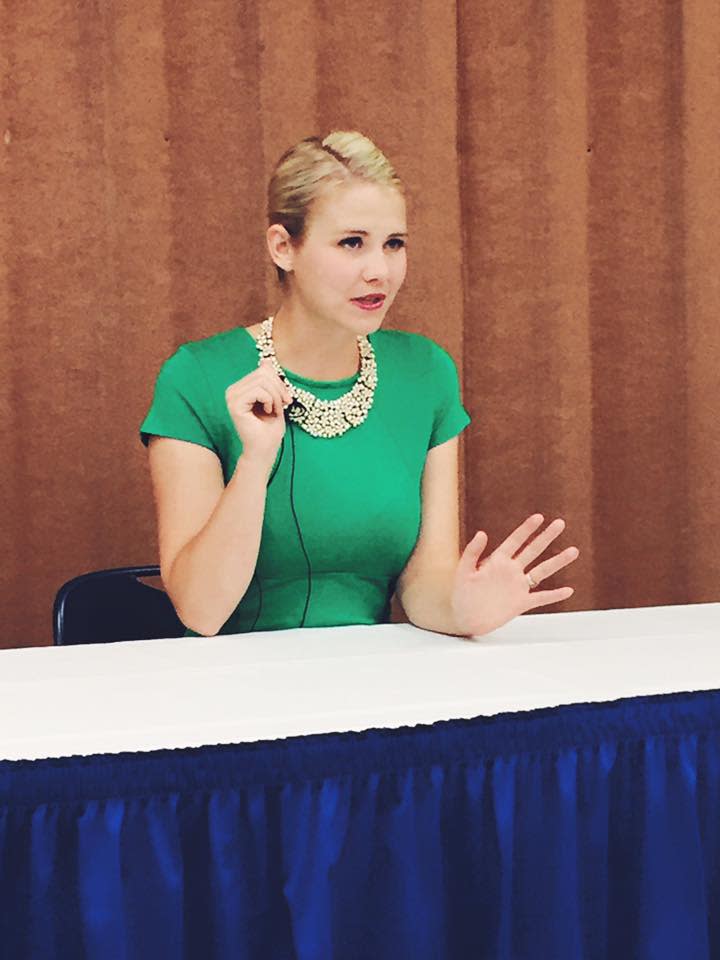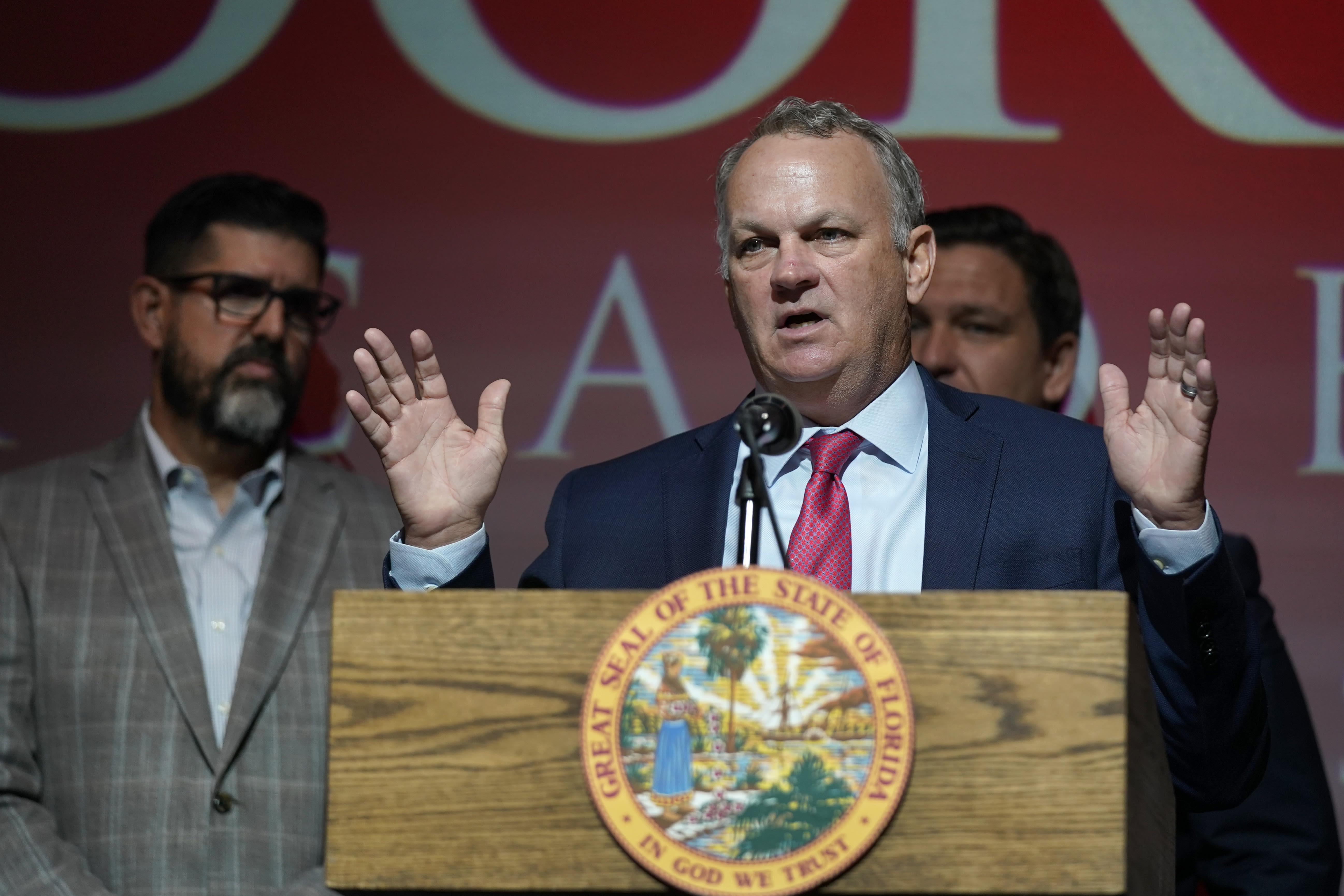Elizabeth Smart Visits Sarasota

Elizabeth Smart—who made national headlines in the early 2000s after she was taken from her Utah home, forced to live with her captors for nine months and then miraculously rescued—spoke at New College’s Sudakoff Center on Wednesday. The event was presented by Designing Women Boutique and Selah Freedom, a support group for victims of human trafficking.
During her speech, Smart—now 27 and married with her own young child—recounted her time in captivity with her kidnappers, a husband and wife, during which she was repeatedly chained, starved, raped and threatened with death. It wasn’t until 2003—when Smart and her captors were stopped on the road by police officers who noticed something was off—that she was released.
Since then, Smart has made it her mission to advocate for victims of abuse and human trafficking. She travels the country to speak, penned a memoir, My Story—which became a New York Times bestseller—and has been involved in supporting legislation such as the AMBER Alert System and the Adam Walsh Act. She also runs the Elizabeth Smart Foundation, which aims to help educate and prevent crimes against children.
“I’m trying to raise awareness about abuse, kidnapping, trafficking and sexual exploitation,” Smart said at a press conference before her talk. “And because they’re such charged topics for so many people, they don’t get talked about. I want to inspire and encourage other survivors to come forward to get the help they need, and hopefully put their predators behind bars.”
Smart said that one of the questions she feels is most damaging to survivors of ordeals like hers is, “Why didn’t you run?”
“It’s natural curiosity, but [when you ask a survivor that], they hear, ‘You should have,’ which I’d say is just as damaging as what they went through,” she said. “Take my story—I was abused [by my captor] physically, sexually and emotionally, and nobody stopped him. So when he said, “If you try to do anything that I don’t want you to, I will kill you,’ I believed him—and that’s why I didn’t run, and why so many other victims don’t run. It’s not because they don’t want to, it’s because they don’t feel like they have that option.”
She said she’s been mostly able to move on—“I have many days that I don’t think about it”—and that she’s benefited from the support of her family and various therapies, including music (Smart majored in music at BYU and is an accomplished harpist).
Most of all, Smart said, she wants to provide survivors of tragedy—like the trafficking victims at Selah Freedom—with a sense of hope.
“The best advice I got was from my mother the morning after I was rescued,” Smart said. “She said, ‘Elizabeth, the best punishment you could ever give [your captors] is to be happy [and] move forward with your life, because feeling sorry for yourself is only allowing them to take more of your life away from you.’
“One of the biggest messages I want to share is one of hope,” she continued. “Whoever you are, whatever moment of life you’re in, you always need hope. We all have our individual struggles, and just to hear that good wins sometimes, it—at least for me—is hope-inspiring.”



